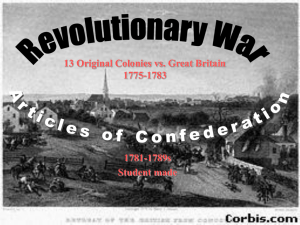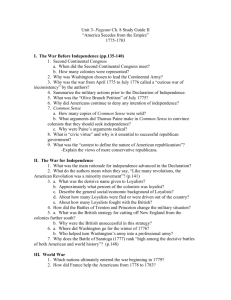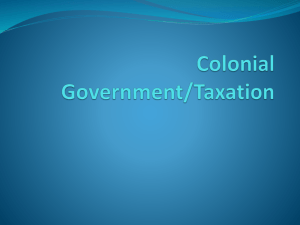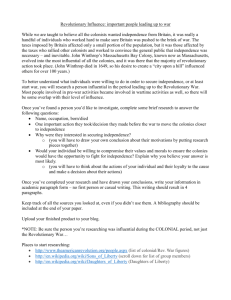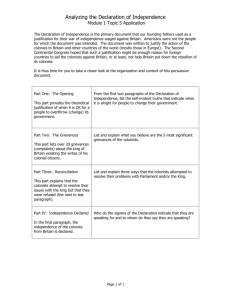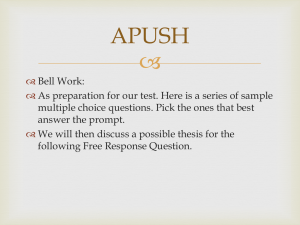ne Challen Unit Title Here and Here and Here Timeline Challenge
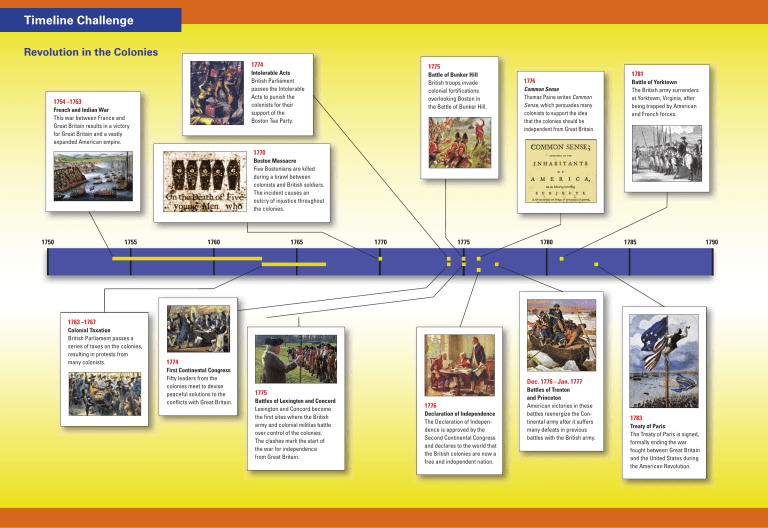
ne Challen Unit Title Here and Here and Here
Timeline Challenge
Revolution in the Colonies
1754 –1763
French and Indian War
This war between France and
Great Britain results in a victory for Great Britain and a vastly expanded American empire.
1774
Intolerable Acts
British Parliament passes the Intolerable
Acts to punish the colonists for their support of the
Boston Tea Party.
1770
Boston Massacre
Five Bostonians are killed during a brawl between colonists and British soldiers.
The incident causes an outcry of injustice throughout the colonies.
1750 1755 1760 1765 1770
1775
Battle of Bunker Hill
British troops invade colonial fortifications overlooking Boston in the Battle of Bunker Hill.
1776
Common Sense
Thomas Paine writes Common
Sense, which persuades many colonists to support the idea that the colonies should be independent from Great Britain.
1781
Battle of Yorktown
The British army surrenders at Yorktown, Virginia, after being trapped by American and French forces.
1775 1780 1785 1790
1763 –1767
Colonial Taxation
British Parliament passes a series of taxes on the colonies, resulting in protests from many colonists.
1774
First Continental Congress
Fifty leaders from the colonies meet to devise peaceful solutions to the conflicts with Great Britain.
1775
Battles of Lexington and Concord
Lexington and Concord become the first sites where the British army and colonial militias battle over control of the colonies.
The clashes mark the start of the war for independence from Great Britain.
1776
Declaration of Independence
The Declaration of Independence is approved by the
Second Continental Congress and declares to the world that the British colonies are now a free and independent nation.
Dec. 1776 – Jan. 1777
Battles of Trenton and Princeton
American victories in these battles reenergize the Continental army after it suffers many defeats in previous battles with the British army.
1783
Treaty of Paris
The Treaty of Paris is signed, formally ending the war fought between Great Britain and the United States during the American Revolution.

